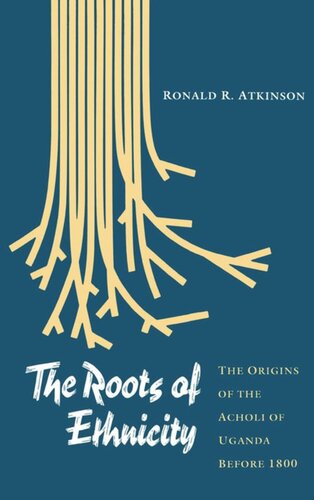

Most ebook files are in PDF format, so you can easily read them using various software such as Foxit Reader or directly on the Google Chrome browser.
Some ebook files are released by publishers in other formats such as .awz, .mobi, .epub, .fb2, etc. You may need to install specific software to read these formats on mobile/PC, such as Calibre.
Please read the tutorial at this link: https://ebookbell.com/faq
We offer FREE conversion to the popular formats you request; however, this may take some time. Therefore, right after payment, please email us, and we will try to provide the service as quickly as possible.
For some exceptional file formats or broken links (if any), please refrain from opening any disputes. Instead, email us first, and we will try to assist within a maximum of 6 hours.
EbookBell Team

0.0
0 reviewsIn The Roots of Ethnicity, Ronald R. Atkinson argues that although colonial rule and its aftermath have played a major role in shaping the particular manifestations of ethnicity in Africa, many sociohistorical developments crucial to current expressions of ethnicity can be traced to a past long before the colonial period. Atkinson develops his argument through an exhaustive examination of the origins of the collective identity of the Acholi of present-day northern Uganda. His study makes clear that by the time of European conquest the essential foundations and the crucial parameters for the evolution of Acholi society and ethnic consciousness had long been established. In presenting his argument for the need to extend the existing scholarship on ethnicity in Africa beyond its twentieth-century focus, Atkinson provides what is perhaps the most detailed reconstruction and analysis yet available of the pre-1800 evolution of an African sociopolitical order.
Beyond these contributions to the study of African history, The Roots of Ethnicity provides an extended case study in and a convincing argument for the use of oral sources in the reconstruction and interpretation of the African past. It will be of interest to students and scholars of anthropology, history, and African studies, as well as to all those interested in ethnicity and the politics of identity.